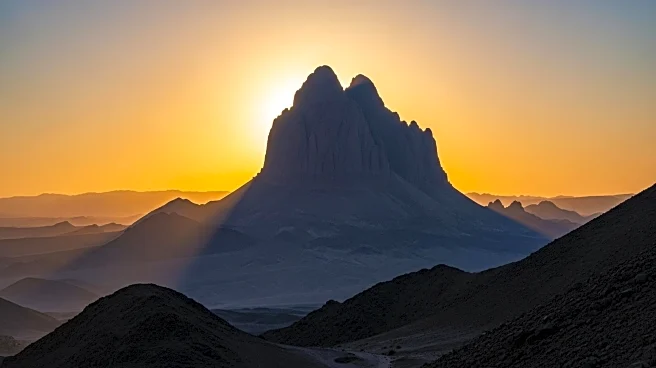What's Happening?
Egypt is facing criticism over plans to develop Mount Sinai, a site sacred to Jews, Christians, and Muslims, into a luxury tourism resort. The project includes constructing hotels, villas, and shopping areas, impacting the local Bedouin community and the historic St Catherine's Monastery. The development has led to the demolition of Bedouin homes and eco-camps, with little compensation offered. The monastery, a UNESCO World Heritage site, is at the center of tensions between Egypt and Greece, with concerns over its cultural and religious significance.
Why It's Important?
The development of Mount Sinai raises significant concerns about preserving cultural heritage and respecting indigenous communities. The project could alter the historical and spiritual landscape of the area, affecting its religious significance and the local Bedouin way of life. The backlash highlights the challenges of balancing economic development with cultural preservation and community rights. It underscores the need for sensitive and inclusive planning in areas of historical importance, which could influence future tourism projects in Egypt and similar regions.
What's Next?
The controversy may lead to increased diplomatic efforts between Egypt and Greece to protect the monastery's heritage. There could be further international scrutiny and pressure on Egypt to halt or modify the development plans. The Bedouin community may seek legal or international support to protect their rights and heritage. The situation could prompt broader discussions on sustainable tourism and the ethical implications of developing sacred sites.
Beyond the Headlines
The project reflects broader trends in Egypt's approach to tourism and economic development, often prioritizing commercial interests over cultural and community considerations. It raises ethical questions about the impact of tourism on indigenous populations and the preservation of historical sites. The development could lead to long-term shifts in the region's cultural landscape, affecting the identity and heritage of the local Bedouin community.










